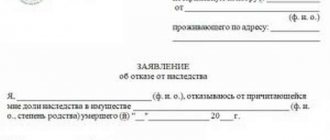Who is a responsible tenant?
And so, this concept is not relevant now, but a responsible tenant in a municipal apartment is a person who decides to rent an apartment.
His responsibilities include paying rent as well as utilities. Also, without his consent, no transactions with the apartment can be carried out, or rather, registering or deregistering someone, making redevelopment, buying and selling. That is, he is the direct owner of this apartment. This applies to municipal housing.
In an apartment that is privately owned, or rather privatized, the responsible tenant is the owner, owner of the housing and can dispose of this housing at his own discretion. Just as in the case of a tenant in municipal housing, in privatized housing the tenant can register and discharge a person to his living space. In addition, he can sell such housing.
If the responsible tenant sells his share, the apartment, then he no longer has any rights to it. If he is registered in it, he, of course, has the right to live, but no longer has the right to dispose of it.
Achieving mutual agreement. Shall we do without trial?
The social tenancy agreement necessarily provides for the obligation of all residents to timely pay fees for the use of the premises and utilities, for its repair and maintenance. How to divide a personal account in a non-privatized apartment? The division of the personal account can be made either at the request of the main tenant (responsible tenant), or in accordance with similar requirements of former members of his family.
This requirement is addressed to all residents of this living space. First of all, it is necessary to reach a mutual agreement on the need to share the costs of maintaining the apartment, on the amount, as well as the form of participation of each interested party in making all payments related to the operation of the apartment. After which you need to conclude a joint agreement, which scrupulously spells out all the responsibilities of the parties.
Responsible tenant, his rights and obligations
Housing Code, Article 67 states that the tenant has the following rights:
- Move other persons into housing;
- Rent out an apartment;
- Allow temporary persons to live in housing that is occupied by them;
- Exchange or replace your home;
- Require that utilities be provided on time, repairs in an apartment building;
Also, according to the law, the employer may have other rights that may be in this code or established by other federal laws and a social tenancy agreement.
His responsibilities include:
- Use of housing that is provided exclusively for its intended purpose;
- The tenant undertakes to ensure that the housing remains safe;
- If necessary, make repairs;
- Make payments for utilities and housing within the required time frame.
These are all the basic rights and obligations that are provided for by the current residential code.
Can a responsible tenant evict someone without their consent?
The answer to the question posed is simple: “ Can a responsible tenant evict a tenant without his consent?” - no, he can not! (If he is not the owner of the property.) This can be understood by reading Article 67 of the Housing Code. In the list of rights that it establishes, there is no one that would give him the opportunity to evict someone from a living space.
However, there are some additions. However, citizens can be expelled from their housing by the landlord if, for example, the housing is not used as intended or the residents violate all the rights of their neighbors and behave inappropriately.
If utilities are not paid, this is also a good reason for eviction.
What other possible reasons
A change of employer is also possible for other reasons:
| Eviction from the apartment | employer and deregistration |
| Divorce of spouses | one of whom is listed in the social tenancy agreement as the tenant |
| Arrest | law enforcement agencies |
| The missing | without a trace |
In any of the above cases, documentary evidence of the need to change the employer is required.
The governing bodies will not take their word for it, even if the opinion is unanimous.
How to change the responsible tenant in a municipal apartment, reasons
All the nuances of the procedure, of course, can be found in the housing code. There are a number of reasons, for example, it could be the death or disappearance of the employer.
Based on the law, a change of employer is carried out only with the consent of all family members.
The reasons may be:
- The main tenant moves out of the apartment.
- Divorce.
- The employer was arrested and sent to prison.
- The most common cause is death. If this happens, then you need to choose a new main tenant. Requirements for the candidate: to be of age and able to work.
Re-registration procedure
In order to be able to appoint a new tenant, you need to go through the procedure of re-issuing a social tenancy agreement. It is standard and is carried out when the composition of residents in housing changes
Important! If the tenant is no longer alive or has left the apartment, then the remaining members of his family continue to live there, since they have the same rights as him.
Where to contact
The first thing you need to do is contact the department (management, department) of housing policy (HCS) of the local administration. There you submit an application indicating that the contract needs to be renewed and the reason itself is described. In some municipalities, employees issue and fill out the contract immediately.
As usual, after submitting an application, a new one is drawn up (you draw up the contract; in some regions this is handled by management organizations or housing departments), and when it is ready, you need to go to the housing maintenance office. There they will carry out all the necessary procedures related to personal accounts, and utility bills will be sent to the name of the new tenant.
Documentation
As with all such procedures, a certain list of documents is required. In this case it is like this:
- Original and also a copy of the personal account;
- Originals or copies of passports of all family members;
- Extract from the house register;
- Tenancy agreement concluded with the municipal housing stock;
- A document must be presented indicating that the main employer has left or died.
All family members must sign the document that is being certified. If any relative is currently absent or cannot come, you must provide notarization of his consent.
Only upon provision of all specified documents can re-registration occur. So, it’s better to check everything in advance and collect all the necessary documents and then go write an application.
Who can be appointed
This question is asked quite often. For example, the main tenant in a municipal apartment dies, and who should now be appointed as the tenant? Let's say there are:
- Adult daughter;
- Youngest daughter, who is a minor;
- A child who is disabled;
- The common-law wife of the late father, whose temporary registration period is coming to an end.
In such a case, the adult daughter, of course, can become the employer. After all, she can work and is a member of the family.
Also, the main tenant can be a common-law wife, but if the registration period expires, then it is not possible to issue a personal account for her. However, the problem is solved by extending the registration.
By the way, the personal account can be divided, that is, the wife pays for some part of the utilities, and the adult daughter pays the other part. This procedure is possible only after the contract has been renewed. After all, the wife of the deceased still needs to obtain a new registration.
The following requirements are imposed on the employer:
- presence of Russian citizenship,
- reaching adulthood,
- confirmation of legal capacity,
- absence of a valid criminal record.
After the death of the responsible tenant, relatives who have the right to sign a new social tenancy agreement must perform the following actions:
- all citizens living in this property must decide who will be appointed as the responsible tenant,
- they draw up a written consent,
— documents are submitted to the administration together with the application,
- if there are no problems, then a new social tenancy agreement is formed,
- after studying this document, it is signed by the new responsible tenant.
This citizen must carefully study all the requirements for real estate, and also take into account the responsibility that has arisen for him.
The basic rules include:
- housing must be used for its intended purpose,
— the safety of all provided residential premises is ensured,
- residential real estate must be maintained in optimal condition, therefore sanitary, technical and engineering requirements are taken into account,
- periodic maintenance of the premises is carried out,
- utilities are paid on time,
- if there are any reasons why it is necessary to make changes to the social tenancy agreement, then this should be carried out with the permission of other residents and in a short time.
After the death of a person, other persons living in the housing can count on the continued use of this residential premises.
Responsible tenant in a privatized apartment, how to change
The answer to this question will be clear if you know what privatization is . That is, if an apartment is privatized, then there will be no tenants in it. It is private property that has been transferred into your hands.
How to change a tenant
The answer to the question of how to change the tenant in a given apartment is simple. The rights of residents in a municipal apartment are absolutely equal. This is due to the fact that, at the moment, the concept of “Responsible Tenant” no longer exists in the Housing Code.
What happens if the tenant lives alone
In this case, after his death, the housing will return to the ownership of the municipality. If he was the only one registered there, then his relatives had no right to live there.
Such an apartment will be distributed in favor of those who need it. Relatives will be able to obtain an apartment only by court decision.
If there are minors left
Another question that interests many is what will happen if the employer dies, but minors remain who are registered and included in the DSN. Then, they can live in the apartment for life.
Often, the transfer of housing to a new tenant continues with privatization. This is because thanks to this, housing can be disposed of as you wish. And the main advantage of privatization is that housing can be passed on by inheritance. But municipal housing is very difficult to transfer to someone else for use; there are strict legal frameworks. There is no need to worry about selling or inheriting such property.
How to become an employer
On the one hand, everything is simple, but as practice shows, this is not so. To understand everything in more detail, we will consider the following example:
Let’s say a granddaughter and grandmother lived in one common apartment, the granddaughter is listed in the contract and is registered. She always helped her grandmother and looked after her, and when she died, she buried her. Of course, the granddaughter’s parents were still registered in the apartment, but they haven’t lived there for a long time. Now the question is: “Does my granddaughter have the opportunity to get this housing?”
Let's take the Housing Code, Article 82:
That is, it is possible. But often, in reality, everything happens differently. The rest of the family members do not live in this living space and the granddaughter has no idea where they might be. Hence, the landlord has every reason to refuse to conclude a rental agreement with her, because she cannot provide the consent of the other two tenants to the municipality.
Then she will need to draw up a witness statement, which will be signed by three neighbors, stating that her parents have not lived here for a long time. And she ran a common household with her grandmother and buried her. She collects all these papers and goes to court and files a lawsuit. Of course, there is a possibility that two residents will be recognized by the court as former family members, and the municipality will also be obliged to recognize the granddaughter’s right to live in this apartment.
The court also has the right to make a division of social services. rental, that is, each family member will become a separate tenant of the apartment. This way, the rent will also be divided and everyone will pay separately.
How to transfer apartment payments to yourself via the Internet
Is it possible to solve the problem with payment notifications via the Internet? This possibility exists, but not in all regions. If there is such a service on the website of the regional Unified Settlement Center, then the newly-minted owner of real estate can send scanned official papers to the specified email address, which are necessary to re-register a new financial account.
The package of documents must include:
- application (a sample is provided on the website);
- passport pages with photo and registration;
- scan of all title documents;
- certificate of family composition;
- utility bill receipts for the previous owner (if any);
- receipts, certificates indicating the absence of debts.
To send all certificates and receipts, you must register in your personal account. If the number of attached files exceeds the allowed size, they can be sent in two emails or archived.







